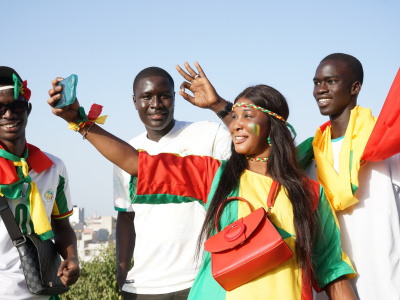
The geopolitics of digital literacy and skills cooperation with Africa
This paper explores Africa’s way forward with regard to digital skills, drawing on the case studies of Rwanda, Senegal, and South Africa. Ennatu Domingo, Sabine Muscat, Stephanie Arnold, Maelle Salzinger and Pria Chetty argue that African governments do not need to reinvent the wheel to develop comprehensive digital literacy frameworks and policies. The EU can be a key partner.
This paper is gender responsive. 
Summary
Compared to digital infrastructure or governance frameworks, digital skills and literacy are often overlooked in geopolitical discussions. Yet, they will have a huge influence on economies and societies. Governments across the world are trying to develop a whole-of-society approach to digital literacy and skills to accelerate their inclusive digital transformation, ensure sustainable and inclusive economic growth and equip their citizens with the competencies needed to respond to future challenges. China, the US and the EU each take different approaches to digital skills and literacy at home and pair them with different global engagement strategies.
This paper explores the way forward for digital skills in Africa, drawing on the examples of Rwanda, Senegal and South Africa. Africa’s demand for investment in digital skills and literacy is particularly high because of its rapid demographic growth and wide digital divide. But, as the continent plays catch-up with major digital powers, it is vulnerable to harms such as online disinformation, cybercrime, data breaches and digital surveillance driven by commercial and state interests. Despite the growing threats that digital technologies present for individuals and societies, African governments have mainly focused on hard skills, while less effort and resources have been invested in soft skills (eg. media literacy, ability to navigate government e-services, social skills to behave online, et cetera), which are key to navigate the internet safely and responsibly.
This paper argues that African governments do not need to reinvent the wheel to develop comprehensive digital literacy frameworks and policies. The EU – whose approach to digital literacy articulated in its DigComp Framework combines both economic and citizenship aspects – can be a key partner.







